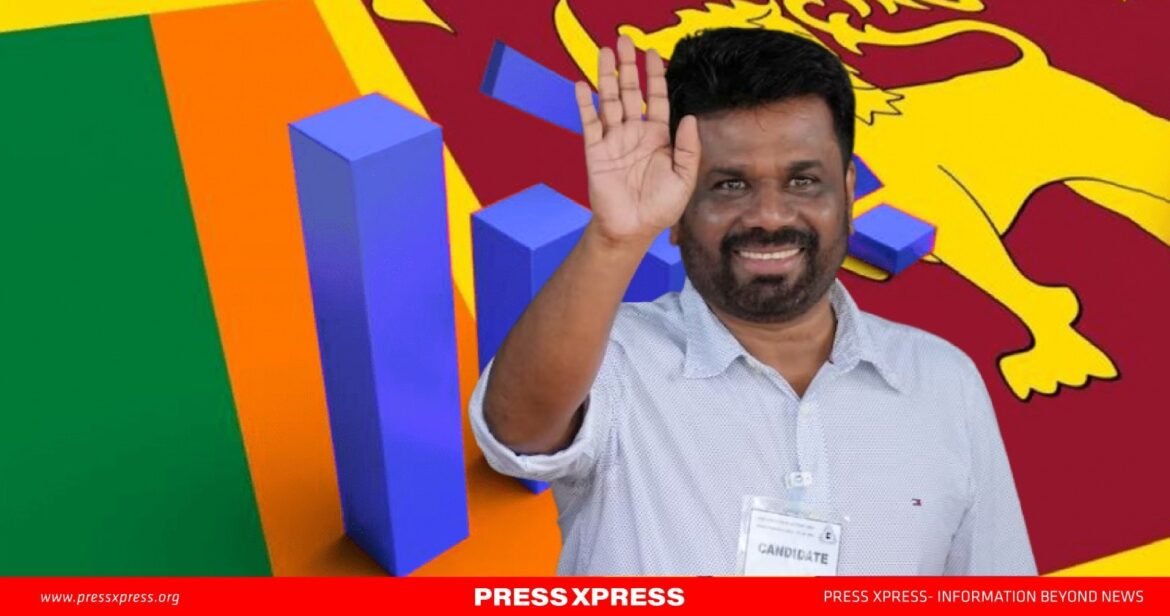At this period, while the world does not see many Marxist-oriented leaders in different countries to lead, then Sri Lankan political education tells a different story! Sri Lankans chose a new direction on September 22, 2024, electing leftist anti-poverty advocate Anura Kumara Dissanayake as president.
Dissanayake’s victory represents a sharp break from establishment parties widely blamed for the 2022 economic collapse. He called the win a “fresh start” but faces the challenge of addressing the economic burden left behind, including the IMF loan tied to austerity measures.
Vidhura S. Tennekoon, an economist at Indiana University, notes that “Dissanayake will likely need to balance his reform agenda with the realities of international financial obligations,” particularly the IMF loan, which has been vital for stabilizing Sri Lanka’s economy after the 2022 crisis.
What Kind of Economy Is Dissanayake Inheriting?
Sri Lanka’s economic troubles reached their peak in 2022, when the nation defaulted on its $51 billion foreign debt. At the time, inflation skyrocketed to 70%, foreign reserves were nearly depleted, and the rupee collapsed. The country experienced severe shortages of fuel, cooking gas, and food, leading to widespread protests. This crisis ultimately forced President Gotabaya Rajapaksa to resign, paving the way for interim president Ranil Wickremesinghe to lead recovery efforts.

By mid-2024, under Wickremesinghe’s stewardship, Sri Lanka saw signs of stabilization. The economy grew by 5% in the first half of 2024, inflation dropped to single digits, and foreign reserves were replenished through IMF-backed reforms. Debt restructuring deals were reached with China, India, and other key creditors. However, the austerity measures that accompanied these reforms, such as higher taxes and reduced subsidies, fueled public dissatisfaction, creating an opening for Dissanayake’s National People’s Power (NPP) to surge in popularity.
Dissanayake, who secured 42% of the vote, capitalized on widespread frustration with economic mismanagement and corruption. However, despite his success, he is the first president in Sri Lanka to win without majority support—the remaining 58% was split among traditional party candidates. His immediate challenge is securing a parliamentary majority in upcoming elections, which will be critical to implementing his economic agenda.
Dissanayake’s Economic Vision: Can He Deliver?
Anura Kumara Dissanayake, leader of both the National People’s Power (NPP) and Janatha Vimukthi Peramuna (JVP), inherits an economy with some signs of stability but a deep-rooted vulnerability. His party, which has Marxist roots but now adopts a center-left, social democratic platform, advocates for an economy driven by production rather than services. Dissanayake’s vision emphasizes “economic democracy,” aiming for not just growth but also improved quality of life—secure housing, healthcare, education, and technology access.
Key to his economic plan is a focus on local production to reduce dependence on imports, especially food. His party has proposed creating a development bank to fund these activities, along with increasing government spending on education and healthcare. These policies align with Sri Lanka’s tradition of universal access to both sectors but contrast sharply with the IMF-backed austerity measures currently in place.
The Challenge of Balancing Reform and Austerity
While Dissanayake’s policies resonate with voters, especially his stance on anti-corruption and economic justice, he faces limited room for maneuver. The IMF deal, which helped stabilize the economy, restricts his ability to drastically increase social spending or reverse key reforms. Dissanayake has indicated he might attempt to renegotiate the terms of the IMF agreement to free up funds for welfare programs, but such negotiations will be complex.
The newly elected president must also address Sri Lanka’s heavy reliance on international creditors. Nearly 40% of Sri Lanka’s external debt is owed to China, with additional loans from India, Japan, and Western countries. While debt restructuring deals are in place, any deviation from the agreed economic path could strain these relationships and jeopardize further assistance.
Can He Bridge the Political Divide?
Dissanayake’s anti-establishment message helped him win significant support, particularly from the southern districts. His anti-corruption stance and promises of systemic change resonated with working-class voters tired of the political elite. However, his candidacy did not gain much traction among minority communities, including Tamils and Muslims, who remain wary of the JVP’s past Sinhala nationalist rhetoric and lack of commitment to power devolution.
This political divide could complicate his efforts to build a unified coalition capable of pushing through his ambitious reforms.
Challenges Ahead: A Fragile Economy and High Expectations
Dissanayake’s election has sparked hope among voters seeking relief from economic hardship, but the road ahead is fraught with challenges. Sri Lanka’s economy, though stabilizing, remains fragile. The IMF’s strict conditions leave little flexibility for Dissanayake to significantly expand social welfare without risking further financial instability.
To meet the high expectations of his supporters, Dissanayake will need to implement bold fiscal measures, such as introducing a wealth tax or redistributive land reforms to boost agricultural production. If he fails to address the economic grievances of the electorate swiftly, disillusionment could set in, paving the way for more nationalist and right-wing forces to regain power.
A Critical Test for Sri Lanka’s New Leader
Anura Kumara Dissanayake’s presidency marks a new chapter for Sri Lanka, one that promises systemic change and a shift away from decades of political mismanagement. However, his success will depend on his ability to balance the economic realities imposed by international creditors with the demands of his voters. Should he fail to deliver meaningful economic relief, the political landscape could once again shift, opening the door for a resurgence of the very forces he campaigned to displace.


